The Universal Declaration of Human Rights: 75 Years On
In a video series commemorating the 75th anniversary of the
Universal Declaration of Human Rights, we hear from a diverse
group of Australians about what human rights means to them
and where our nation still needs to improve.

Video series
'An action plan for humanity'
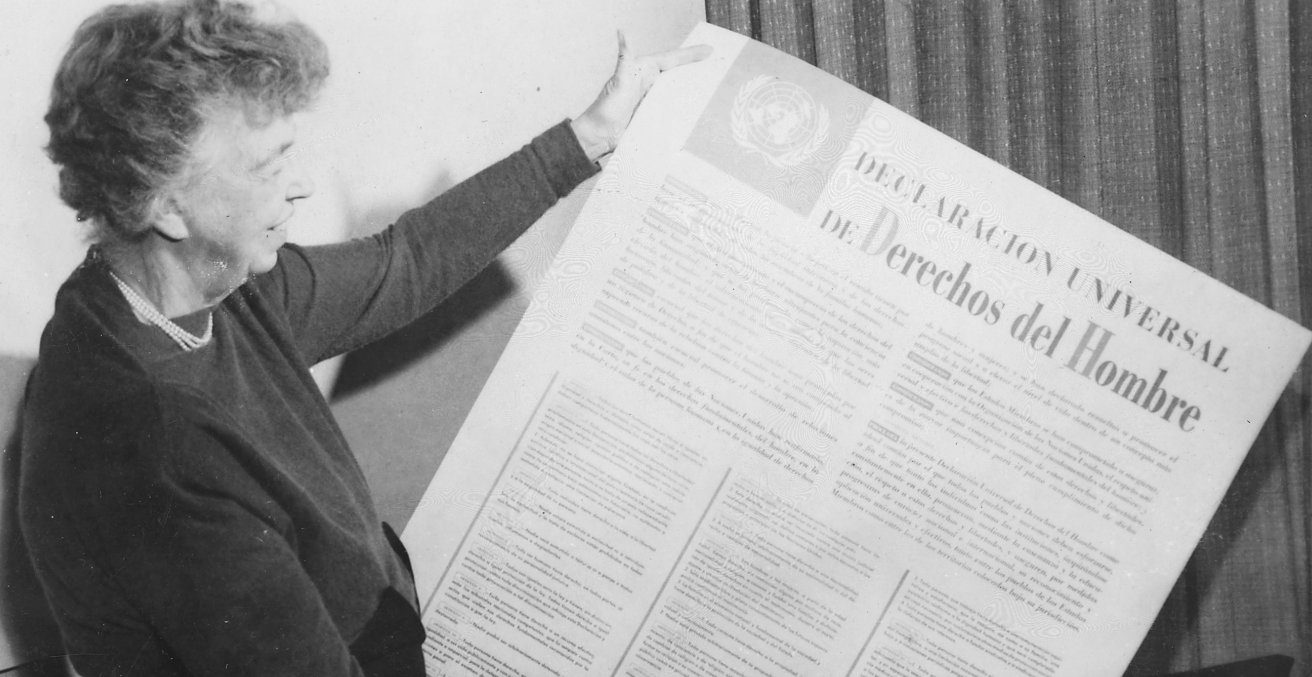
10 December 2023 marks 75 years since the creation of:
“One of the most important documents ever written in human history.”
But how did the Universal Declaration of Human Rights shape Australia, and what does it still mean for us today?
In a 5-part video series marking the milestone anniversary, we hear from a diverse group of Australians about what human rights means to them and where our nation still needs to improve.
The Commission acknowledges this series comes at a time of major global crises. It is in the pursuit of peace, justice, and equality that we discover our common ground.
Now, more than ever, it’s time to promote and protect human rights.
Series photo gallery
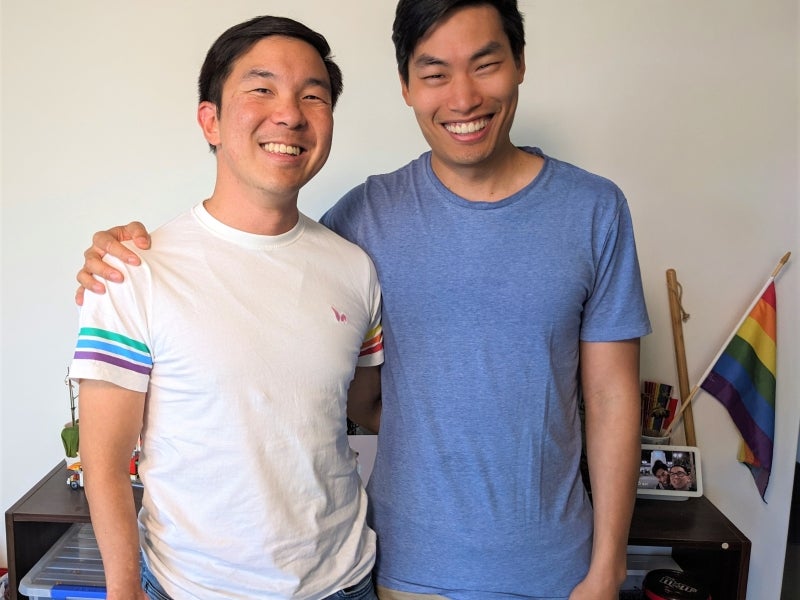
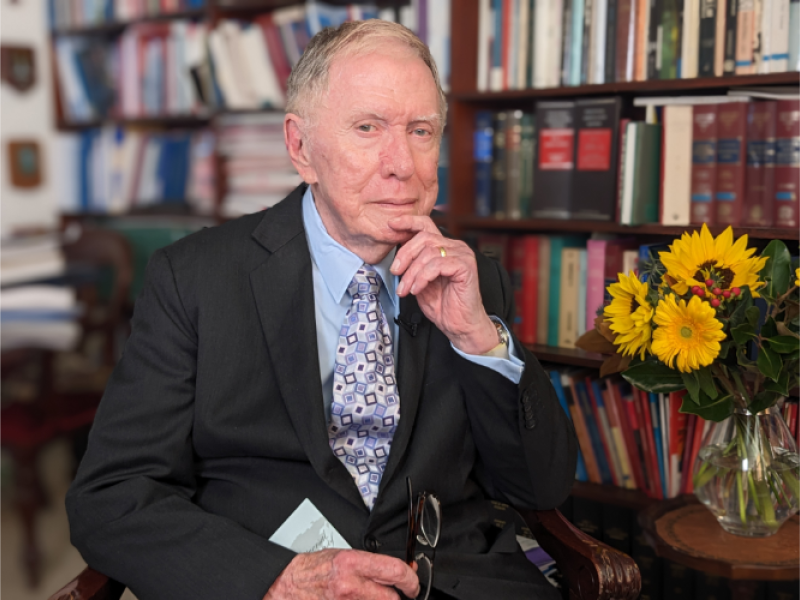
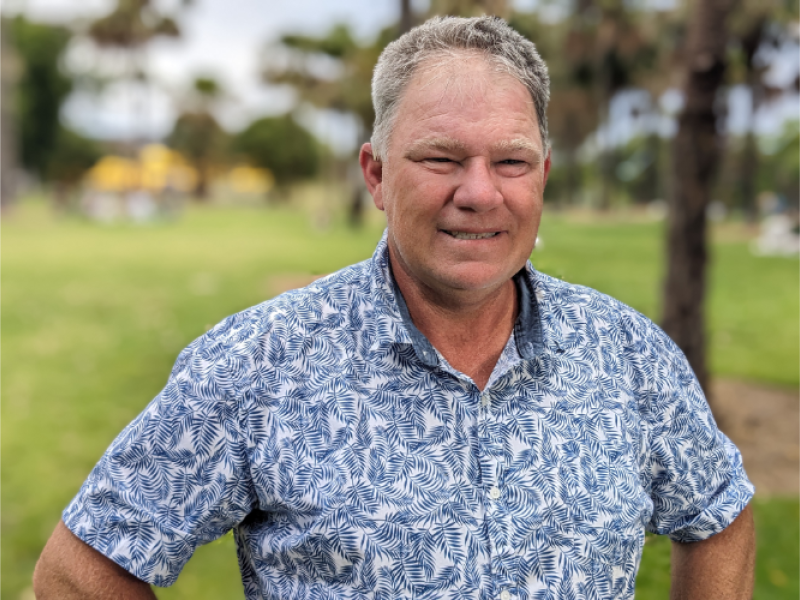
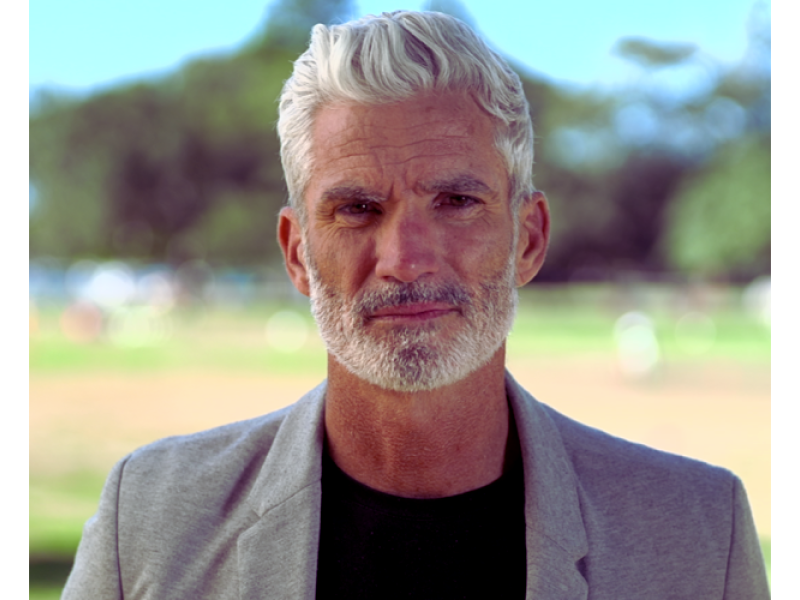
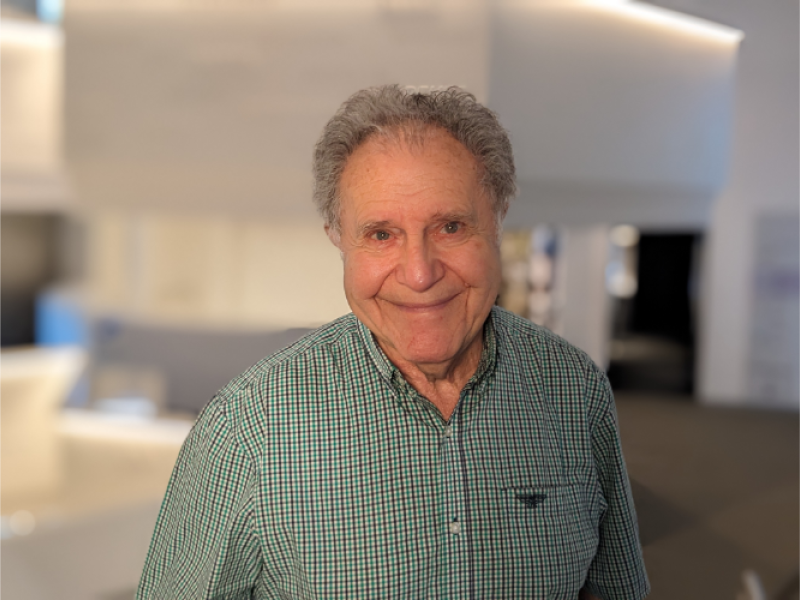
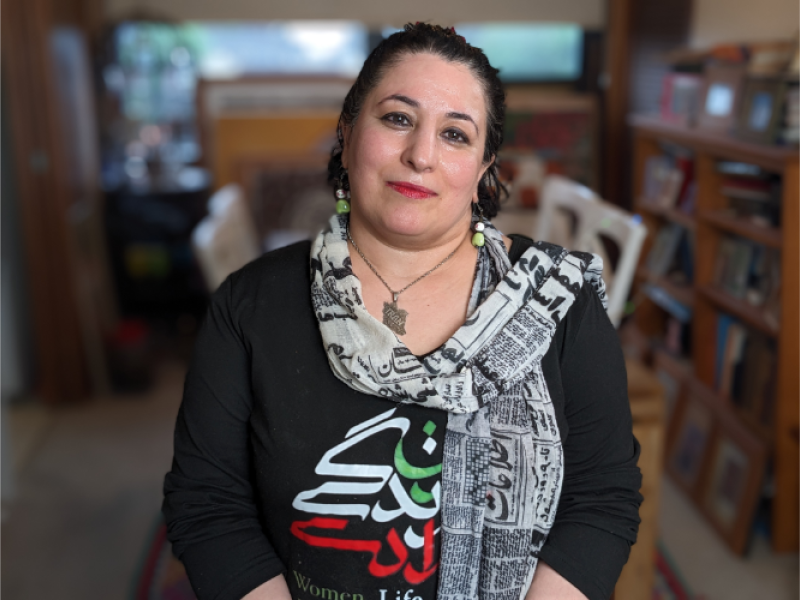
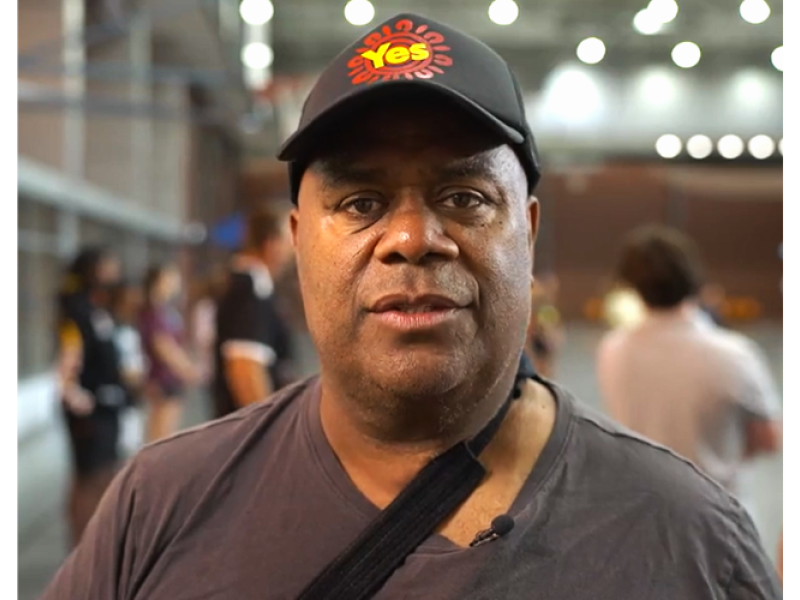
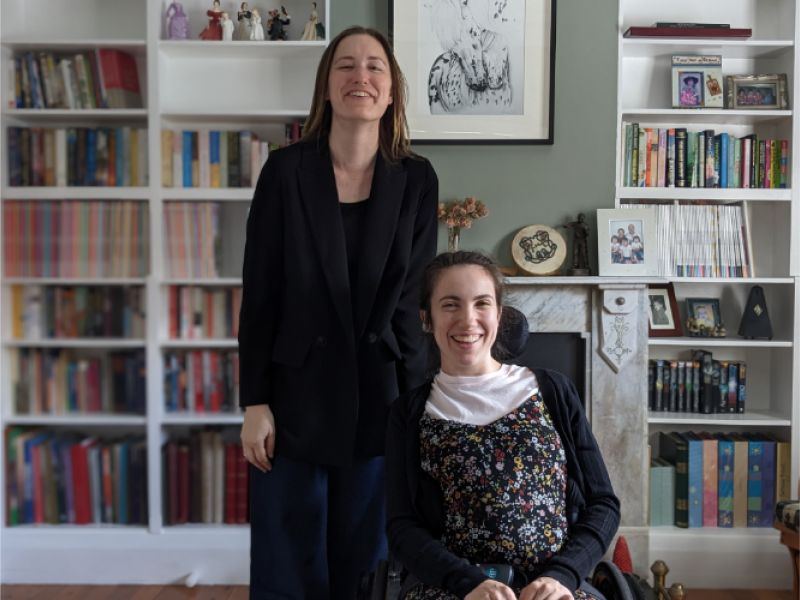
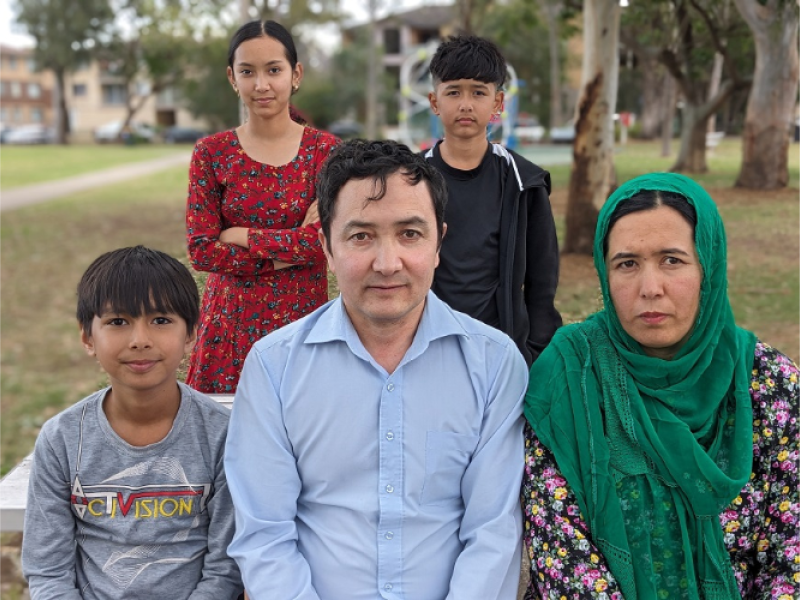










The Australian Connection
-
Australia's instrumental role in Declaration's adoption
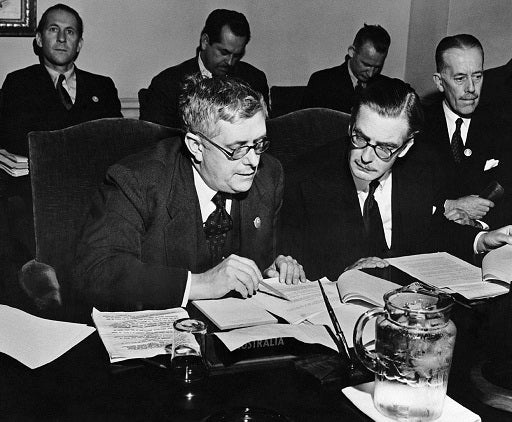
Formed in the aftermath of the Second World War, the Universal Declaration of Human Rights was adopted by the newly-formed UN General Assembly in Paris on 10 December 1948. It is an aspirational international document that enshrines the rights and freedoms of all human beings.
The formation of both the United Nations and the Declaration have helped reshape our modern world, and Australia played a prominent role.
Australia was a founding member of the UN and was one of only eight nations involved in drafting the Declaration.
-
'The right man at the right time': 'Doc' HV Evatt
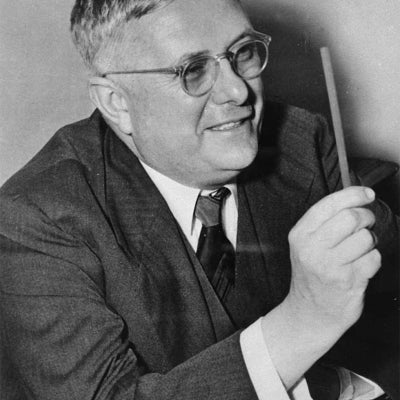
Dr Herbert Vere Evatt (1894-1965), the then-Foreign Minister of Australia, was extremely influential in the development of the Declaration's draft.
A revered scholar and former High Court judge, he was President of the General Assembly of the United Nations, the only Australian that has ever held that title, when the draft was adopted in Paris in 1948.
Find out out more about the man affectionately nicknamed 'Doc' on the Evatt Foundation website.
-
A pioneer: Lady Jessie Mary Street
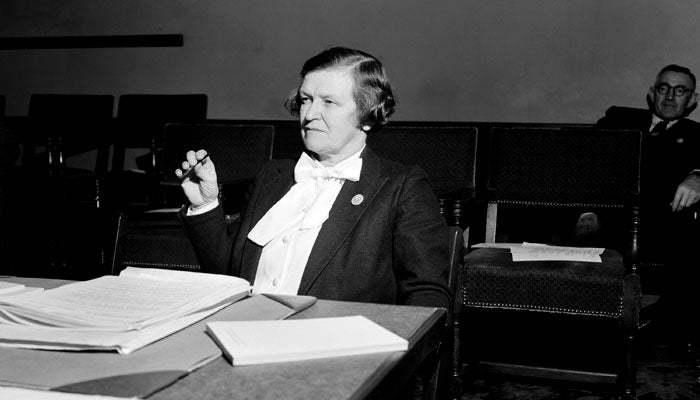
In 1945, Jessie Street (1889-1970) was the only female adviser in the Australian delegation to the United Nations Conference on International Organization, held in San Francisco.
In collaboration with other women, she secured the insertion of the word 'sex' in the clause 'without distinction as to race, sex, language or religion' wherever it occurs in the UN Declaration. This was pivotal to ensure women were equally recognised in the Document.
Find out more about this suffragette dubbed 'Red Jessie' by Australian media on the Jessie Street Trust website.
More on the Universal Declaration of Human Rights
Transcripts
Access written transcripts of the videos on this page.
-
Episode 1 transcript
What does 'human rights' mean to you?
It's been 75 years since the creation of the Universal Declaration of Human Rights.
So, what does it mean to Australians today?
And where can our nation still improve?
The Australia Human Rights Commission acknowledges this series comes at a time of major conflict and catastrophe around the world.
No person, of any background, should have their human rights infringed.
Article 1 of the Declaration states that “All human beings are born free and equal in dignity and rights.”
We again call for those rights to be upheld for all.
Shane Phillips, First Nations Elder
Human rights means safety, it means empowerment, it means care, it means love. It just means looking after each other.”
Shokufeh Kavani, Artist and activist
“Human rights means freedom of expression without repression”
Woman
“Human rights for me is being able to practice my own religion”
Steve
“And I can leave my religion or follow none” (last take)
Sean Tubridy
“Human rights are important because I want to be heard.”
Ali Jawad Rahman
“Human rights means escaping conflict and starting a new life for my family and I.”
Young family
“Human rights means we can choose the education for our daughter without discrimination.”
Café worker
“human rights means I get holiday pay”
Jonathan Lim
“Human rights mean we can live the life we choose.”
Natasha Stott Despoja, Human Rights Advocate
“Inherent and undeniable protections to which we are all entitled. They are the guiding principles for equality that we are obliged to affirm and protect and uphold, as individuals or as states. And they are the universal standards that actually unite us, regardless of our ethnicity, gender or background.”
Ernie Friedlander, Human rights advocate
“It certainly gives me a direction, which we all need, but for the majority of people it would be important to identify with it because if we observe human rights we can move on and have a better understanding for the people around you”
Craig Foster, Human rights advocate
“many of the freedoms that we take for granted ……..just the right for children to go to school, the rights of all of us to participate in civil society, the right of people to be free from torture, from arbitrary detention - all of them just basic things that Australians don’t have to wrestle with - are fundamental issues in many other parts of the world.”
Bronte Moules, Australian Ambassador for Human Rights
“So many studies have shown that successful, harmonious, peaceful, stable societies, that prosper economically (true there is an economic link) are the ones that respect rights and work for equality.”
Shokufeh Kavani
“It’s important for Australia to protect HR, to cherish and value HR. It’s like the air. It’s something that’s not visible but don’t realise it when you can’t breathe. Then you die. People take it for granted because you can’t see it but you will realise it when it’s taken away from you.”
Commemorating the 75th anniversary of the Universal Declaration of Human Right.
This series was produced on the Gadigal Lands of the Eora Nation.
We pay tribute to Elders past, present and emerging.
-
Episode 2 transcript
How this milestone document came to be
It's been 75 years since the creation of the Universal Declaration of Human Rights.
In this video we look at the Document’s inception.
The Australia Human Rights Commission acknowledges this series comes at a time of major conflict and catastrophe around the world.
No person, of any background, should have their human rights infringed.
As Article 1 of the Declaration states, “All human beings are born free and equal in dignity and rights.”
We again call for those rights to be upheld for all.
ROSALIND CROUCHER, AUSTRALIAN HUMAN RIGHTS COMMISSION PRESIDENT
“The idea of a universal declaration of human rights was prompted by the horrors of the holocaust and the experiences people had during the Second World War. It was a propelling moment to say we have to do better, we have to enshrine in some universal understanding of what these human rights are.”
DOC EVATT AT UN GENERAL ASSEMBLY IN 1948
“I call the general assembly to order”
MICHAEL KIRBY, FORMER JUSTICE OF THE HIGH COURT OF AUSTRALIA
"Doctor Herbert Evatt, the Foreign Minister of Australia at the time, was extremely influential in the development of the draft and he was elected president of the general assembly of the UN when the draft was adopted in Paris in 1948. We can be proud of HV Evett.”
ROSALIND CROUCHER
“Doc Evatt as he was known was the right person in the right place at the right time. As was Jessie Street, who played a pivotal role in ensuring women were equally recognised in the document.”
DOC EVATT AT UN GENERAL ASSEMBLY in 1948
“This assembly has adopted this very important declaration”MICHAEL KIRBY, FORMER JUSTICE OF THE HIGH COURT OF AUSTRALIA
“We got a copy of it, which was sent to Australian public schools by Dr Evatt from New York. And I’ll never forget reading it and studying it, and it’s always been near me, it’s been ‘under the pillow’ during my life and it’s given me inspiration and an outline and an action plan for humanity that we should try to achieve.”
CRAIG FOSTER, HUMAN RIGHTS ADVOCATE
“The Universal Declaration of Human Rights in particular to me is one of the most important documents ever written in human history.”
ROSALIND CROUCHER
“The UDHR was an aspirational document”
MICHAEL KIRBY
“Essentially, the Magna Carta of the whole world.”
FINAL MESSAGE ON SCREEN
Commemorating the 75th anniversary of the Universal Declaration of Human Rights.
This series was produced on the Gadigal Lands of the Eora Nation. We pay tribute to Elders past, present, and emerging.
-
Episode 3 transcript
'Missing Perspectives'
ELEANOR ROOSEVELT, 1948 HISTORICAL QUOTE
“Join our effort in good faith to live up to this high standard.”
APPLAUSE
TEXT ON SCREEN
In 1948 the UN passed the Universal Declaration of Human Rights declaring “All human beings are born free and equal in dignity and rights.”
75 years later some are still waiting to see that promise fulfilled…
HANNAH DIVINEY, MISSING PERSPECTIVES CO-FOUNDER
“Hi, my name is Hannah Diviney. I am an actor, an advocate, an author, and the editor-in-chief of Missing Perspectives. And we started it because we felt really strongly about the lack of representation of young women in media.
PHOEBE SAINTILIN, CO-FOUNDER MISSING PERSPECTIVES
“We currently have contributors in I think it's over 60 countries now. So we have like amazing global coverage, and we have women in Afghanistan writing about the fall of Kabul to the Taliban and how it's impacted them and their peers. We have women in Yemen fighting blockades, who are creating like a cycling movement. We have a lot of women in the Asia Pacific, including the Solomon Islands, writing about how their communities are being impacted by climate change.”
HANNAH DIVINEY, MISSING PERSPECTIVES CO-FOUNDER
“Just wanted to create a scenario where young women, especially marginalised women, could have a voice to have a space and share their stories.
TEXT ON SCREEN
Hannah was born with cerebral palsy.
Her parents were told she would never walk or talk.
She’s now one of Australia’s leading disability advocates.
HANNAH DIVINEY, MISSING PERSPECTIVES CO-FOUNDER
“The only real times I saw other disabled people were in therapy-specific settings, and I think it would have helped me a lot especially to see disabled adults - just out and about living their lives. A disabled person doesn't have to be a Paralympian. They don't have to be on television, they don't have to be doing anything that we would deem 'extraordinary'. They can just be living their lives; like they can be teachers, or florists, or nurses.”
TEXT ON SCREEN
Hannah is eagerly awaiting the implementation of the Disability Royal Commission recommendations.
HANNAH DIVINEY, MISSING PERSPECTIVES CO-FOUNDER
“No, Australia is not doing enough. I'm of the belief that we kind of need action now. We can't really wait another decade for groups homes to close, or schools to become unsegregated. Human rights means everybody being treated decently, everyone being treated with care, and people being treated not with equality actually - but with equity.”
PHOEBE SAINTILIN, CO-FOUNDER MISSING PERSPECTIVES
“Human rights is just people feeling like they can have their voice heard and that they can live with dignity. And I think they are two pillars that are integral to what we're doing.”
TEXT ON SCREEN
Commemorating the 75th anniversary of the Universal Declaration of Human Right.
This series was produced on the Gadigal Lands of the Eora Nation.
We pay tribute to Elders past, present and emerging.
-
Episode 4 transcript
'Clean Slate Without Prejudice'
TEXT ON SCREEN
Indigenous Australians aged 10-17 are 24 times more likely to be in detention than any other young person.
This over-representation is considered a major barrier for improving the human rights of First Nations people, with youth justice reform an urgent priority.
William Caldwell, Youth Mentor
“We want a better future. I don’t want my nephews and nieces doing jail time like I did. I’ve done enough time for everyone and that’s where it’s got to stop.”
Koda Roberts-Carr
“It makes me feel like we’ve been lied to because they always say indigenous will get fair rights one day and it should be today but it’s not so that doesn’t make me feel good.”
Landyn
“I believe Australia should stand for a place where you can be a free person to do whatever you want, that everybody should have a voice and no one should be excluded because of the colour of their skin.”
TEXT ON SCREEN
Children’s rights advocates say community-led initiatives play an important role in empowering First Nations youth and their communities … giving them a strong foundation to thrive.
In one Sydney suburb, a unique program is inspiring change.
Sean Phillips, Founder
“So, Clean Slate Without Prejudice, this program, is teaching strength but first you have to start with routine, you break yourself down and rebuild yourself physically then you learn about your people because there’s thousands of years of strength that have been suppressed from us, and then it’s about high expectations.”
William Caldwell, Youth Mentor
“We get them in the morning, we teach them routine, we teach them discipline, we talk about safety and respect. And all kids should know that. Not every kid has a parent doing the right thing by them.”
Shane Phillips, Founder
“We decided we wanted to train with the coppers (police officers) so we said can we pick some coppers that will train with us too. So we decided to train together. And as that happened it kept growing and after the first few weeks we started to become a bit of a team. In the end the police said they saw less crime; there’s less victims, less paperwork. We had a relationship with the police. It wasn’t perfect but we had dialogue and respect at that level. It’s different, it’s unorthodox in a lot of ways but it’s something we built ourselves.”
Keara Neumann, Participant and Young Mentor
“It really got me on my feet. I copped a bit of racism at school but coming here is like a little black fella’s paradise. It’s pure love. Like when you say goodbye at work it’s goodbye, love youse all. It’s amazing.”
TEXT ON SCREEN
Commemorating the 75th anniversary of the Universal Declaration of Human Right.
This series was produced on the Gadigal Lands of the Eora Nation.
We pay tribute to Elders past, present and emerging.
-
Episode 5 transcript
Australia's human rights progress
Martin Luther King, Human Rights Champion
“I believe that even amid today’s mortar bursts and whining bullets there is still hope for a brighter tomorrow.”
TEXT ON SCREEN
It has been 75 years since the Universal Declaration of Human Rights was created.
But globally, and in Australia, its promise is still a “work in progress”.
Shane Phillips, Human Rights Advocate
“The data shows the stats are only getting bigger. We’re dying younger. We’re being incarcerated more. Our kids are being removed more. Every other practice they’ve got around it is unsustainable. We can rebuild, but we have to systemise it, we have to measure it, and communities have to own it.”
Hon. Michael Kirby, Former Australian High Court Justice
“There’s still a lot to do - women’s rights, the rights of refugees, the rights of people with colour, people with disabilities. All of these categories, they’re on the edge and they need the support of a document like the Universal Declaration. It’s a banner that we should all be marching behind in order to ensure that no one is left behind.”
Dr Jonathan Lim
“It’s really important that if we as a country are trying to say ‘hey we are a really fair country’, that we actually support efforts to try to make it as fair as possible for everyone.”
Sean Tubridy signing in Auslan
“Australia needs to respect and protect people with disability.”
Craig Foster, Human Rights Advocate
“When we can treat refugees as inhuman and simply not grant them the basic rights under the law that means there’s no baseline, there’s no limit to how we can treat anyone, and that includes each other. And that’s dangerous.”
Nelson Mandela, Human Rights Champion
“To deny people their human rights is to challenge their very humanity.”
Emeritus Professor Rosalind Croucher, Australian Human Rights Commission President
“If we don't get that greater entrenchment of rights, what we will find in five years, ten years, is a whole slew of royal commissions again, after thousands and thousands of people's lives have been seriously affected by poor decisions, or badly designed policies that have not had human rights at their centre.”
Eleanor Roosevelt, Human Rights Champion
“If we observe these rights, for ourselves and for others, I think we will find that it is easier in the world to build peace.”
Rosalind Croucher, Commission President
“Anniversaries are always good to reflect. Have we failed? Have we done well? Have we just tracked along nicely? But using it as an opportunity to say let's do better. Let's capture those ideas, make them much more part of our fabric of law, and inform what I describe as ‘rights mindedness’. Let's build that ‘rights mindedness’ of people right across our fine nation to understand, appreciate, and respect the human rights, to understand their own human rights, but also to respect the human rights of others.”
Ernie Friedlander, Human Rights Advocate
“Stop, think, and consider other people, accept them, try to understand them. It will be a big step forward if we can achieve that.”
Bronte Moules, Australian Human Rights Ambassador
“One thing that 75 years has confirmed that we can't let up.”
Craig Foster, Human Rights Advocate
“Each person within Australia whose rights are breached and as we would say, are not treated free and equal, means that none of us ultimately are.”
TEXT ON SCREEN
Commemorating the 75th anniversary of the Universal Declaration of Human Right.
This series was produced on the Gadigal Lands of the Eora Nation.
We pay tribute to Elders past, present and emerging.
-
Human Rights Awards video transcript
75 years of the Universal Declaration of Human Rights
TEXT ON SCREEN
Commemorating 75 years of the Universal Declaration of Human Rights.
SHANE PHILLIPS, HUMAN RIGHTS ADVOCATE
“Human rights means safety, it means empowerment, it means care, it means love. It just means looking after each other.”
WOMAN STANDING WITH FRIEND
“Human rights for me is being able to choose my own religion and practise my faith.”
STEVE MORTON, SYDNEY ATHEISTS
“And I can leave my religion or follow none at all” (last take)
SHOKUFEH KAVANI, ARTIST AND ACTIVIST
“Human rights means freedom of expression without oppression”
YOUNG FAMILY SPEAKING IN SPANISH
“Human rights means we can choose the education for our daughter without discrimination.”
SEAN TUBRIDY, SIGNING AUSLAN
“Human rights are important because I want to be heard.”
ALI JAWED RAHMAN WITH FAMILY
“Human rights means I can escape conflict and start a fresh life for my family and I.”
CAFE WORKER
“Human rights means I get holiday pay.”
DR JONATHAN LIM
“Human rights mean we can live the life we choose.”
CRAIG FOSTER, HUMAN RIGHTS ADVOCATE
“Many of the freedoms that we take for granted, just the right for children to go to school, the rights of all of us to participate in civil society, the right of people to be free from torture, from arbitrary detention. All of these just basic things that Australians don’t have to wrestle with, are fundamental issues in many other parts of the world.”
((MUSIC CHANGE, DIP TO BLACK INTO ROS))
Em. Prof. ROSALIND CROUCHER AM, AUSTRALIAN HUMAN RIGHTS COMMISSION PRESIDENT
“The idea of a universal declaration of human rights was prompted by the horrors of the holocaust and the experiences people had during the Second World War. It was a propelling moment to say we have to do better, we have to enshrine in some universal understanding of what these human rights are.”
HV EVATT HISTORICAL QUOTE
“I call the general assembly to order.”
THE HON. MICHAEL KIRBY, FORMER JUSTICE OF THE HIGH COURT OF AUSTRALIA
“Dr. Herbert Evatt, the Foreign Minister of Australia at the time, was extremely influential in the development of the draft and he was elected president of the general assembly of the United Nations when the draft was adopted in Paris in 1948. We can be proud of HV Everett”
ROSALIND CROUCHER
“Doc Evatt as he was known was the right person in the right place at the right time, as was Jessie Street, who played a pivotal role in the equal recognition of women.”
HV EVATT HISTORICAL QUOTE
“This assembly has adopted this very important declaration”
THE HON. MICHAEL KIRBY, FORMER JUSTICE OF THE HIGH COURT OF AUSTRALIA
“We got a copy of it, which was sent to Australian public schools by Dr Evatt from New York and I’ll never forget reading it and studying it and it’s always been near me, it’s been ‘under the pillow’ during my life and it’s given me inspiration and an outline and an action plan for humanity that we should try to achieve.”
TEXT ON SCREEN
“A MILESTONE ANNIVERSARY…
BUT IN AUSTRALIA, ITS PROMISE IS STILL A WORK IN PROGRESS”SHANE PHILLIPS, HUMAN RIGHTS ADVOCATE
The data shows the stats are only getting bigger. We’re dying younger. We’re being incarcerated more. Our kids are being removed more. Every other practice they’ve got around it is unsustainable. We can rebuild, but we have to systemise it, we have to measure it and communities have to own it.
HANNAH DIVINEY, HUMAN RIGHTS ADVOCATE
No, Australia is not doing enough. I'm of the belief that we kind of need action now. We can't really wait another decade for groups homes to close, or schools to become unsegregated.
THE HON. MICHAEL KIRBY, FORMER JUSTICE OF THE HIGH COURT OF AUSTRALIA
"Australia has improved during my lifetime. But there's still a lot to do women's rights, the rights of refugees, the rights of people of colour, people with disabilities, all of these categories, they're on the edge, and they need the support of a document like the Universal Declaration."
ROSALIND CROUCHER, AUSTRALIAN HUMAN RIGHTS COMMISSION PRESIDENT
“If we don't get that greater entrenchment of rights, what we will find in five years, ten years, is a whole slew of royal commissions again, after thousands and thousands of people's lives have been seriously affected by poor decisions, or badly designed policies that have not had human rights at their centre.”
SHOKUFEH KAVANI, ARTIST AND ACTIVIST
“It’s very important for Australia to protect human rights, to cherish and value it. It’s like the air. It’s something that’s not visible but don’t realise it when you can’t breathe. Then you die. People take it for granted because you can’t see it but you will realise it when it’s taken away from you.”
DR JONATHAN LIM
“It’s really important that if we as a country are trying to say ‘hey we are a really fair country’, that we actually support efforts to try to make it as fair as possible for everyone.”
ERNIE FRIEDLANDER, HUMAN RIGHTS ADVOCATE
“To stop, think, and consider other people. Accept them, try to understand them. It will be a big step forward if we can achieve that.”
TEXT ON SCREEN
Commemorating the 75th anniversary of the Universal Declaration of Human Right.
This series was produced on the Gadigal Lands of the Eora Nation.
We pay tribute to Elders past, present and emerging.
Access audio-described videos:
